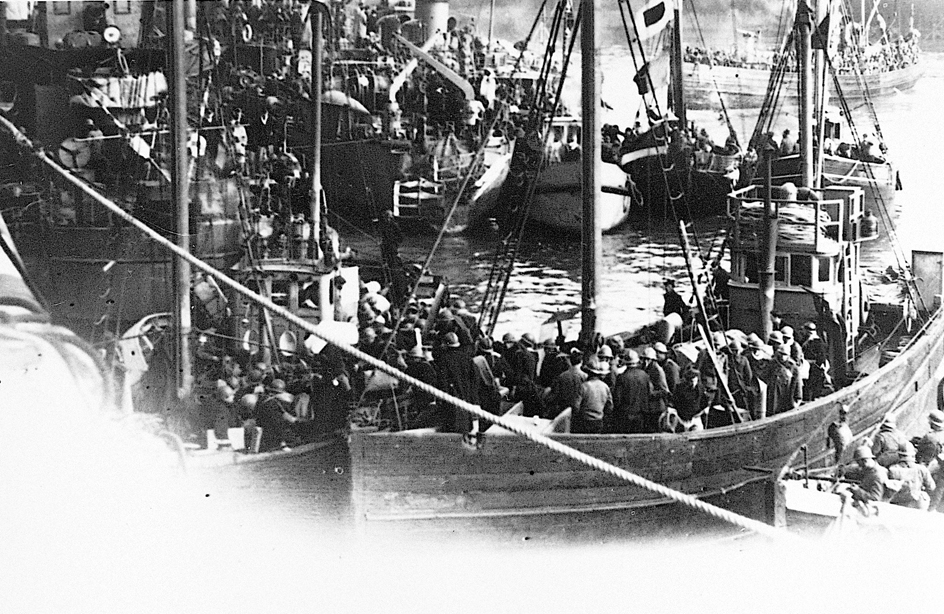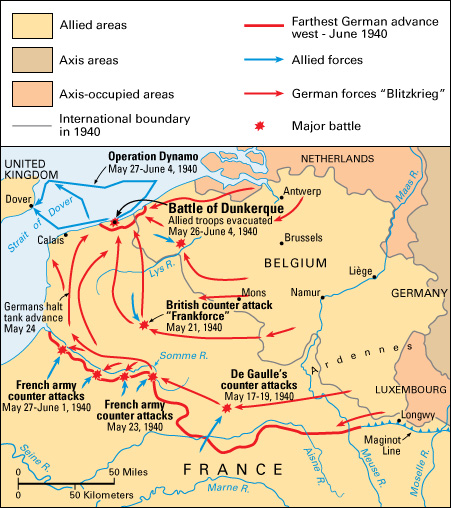Dunkerque, Battle of, was fought between German and Allied troops during World War II (1939-1945). It took place in May 1940 at the French port of Dunkerque (also spelled Dunkirk or Dunquerque). The battle was a major victory for the Germans over the Allies. However, Dunkerque became famous for the dramatic rescue of hundreds of thousands of Allied soldiers. The Battle of Dunkerque was part of the larger Battle of France, which ended with France’s surrender to Germany on June 22, 1940.

In May 1940, Germany invaded Belgium. The invasion forced the defending Belgian, British, and French troops to retreat to Dunkerque, across Belgium’s border with France. German warplanes and tanks soon attacked Dunkerque’s defenses. On May 24, the Germans halted their tank advance toward Dunkerque. The halt, which lasted for two days, gave the Allies time to organize an evacuation of their threatened troops.

To rescue the troops, the United Kingdom sent all available seacraft. The fleet of “little ships” included destroyers, ferries, fishing vessels, motorboats, and yachts. Under renewed German assault, the boats carried soldiers from the beach at Dunkerque to larger warships offshore. The soldiers then were brought to England.
From May 26 to June 4, the rescue effort ferried about 338,000 Allied troops safely from Dunkerque to England. About 35,000 soldiers were left behind, along with tens of thousands of vehicles and tanks. The British Royal Air Force lost more than 100 warplanes protecting the evacuation. The Germans sank 6 British destroyers and more than 200 smaller ships. Another 220,000 Allied troops were eventually rescued from French ports.
The Battle of Dunkerque was a crushing defeat for the Allies. However, the rescue effort enabled the Allies to fight another day. The British expression “Dunkerque spirit” describes the ability to rally in the face of adversity.
See also Dunkerque ; World War II (Early stages of the war) .
